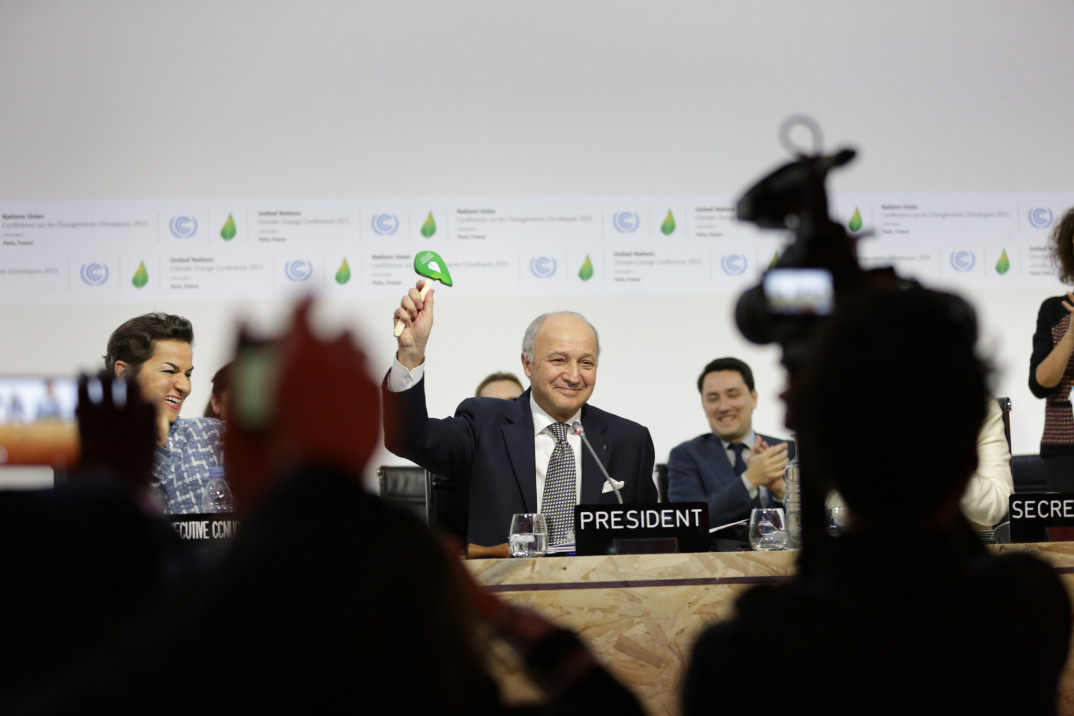Is the Paris Agreement Ethical?
As the COP22 (a conference where world leaders gather to discuss climate policies) took place in Marrakech a few weeks ago, environmentalists were optimistic about the enforcement of the Paris agreement: 195 countries are committing to keep global temperatures at two degrees above pre-industrial levels. Although some more radical environmentalist groups complain this deal is insufficient, it is widely announced by world leaders as a major breakthrough in the struggle against global warming.
Yet, at the same time, while COP22 took place, there was a major concern after Donald Trump’s shocking victory. The deal has already been signed, and theoretically, Trump cannot pull the United States out of it. But, he has at his disposal other means of, if not pulling out completely, at least not being committed to the agreement’s agenda. Environmentalists have good reason to be worried. One of Trump’s first appointees was Myron Ebell, who is to be in charge of the Environmental Protection Agency. Environmentalists have little hope that Ebell, a man with a record of global warming skepticism, will work with them. Furthermore, during his campaign, Trump himself made no secrets about his views regarding climate change: it is all a hoax perpetrated by the Chinese.
This, needless to say, is ludicrous. The overwhelming scientific consensus is that, indeed, global warming is real, and it is caused by human beings. But, that does not mean that the Paris agreement is a good solution to the climate change problem. One of Trump’s most harming effects when it comes to his views on climate change, is that it has made it all too easy to delegitimize any opposition to the Paris agreement, or for that matter, to the entire environmentalist agenda. Criticize any aspect of the Paris agreement, and you will be lumped with unscientific climate change conspiracy theorists such as Trump.
Yet, one needs not be a denialist in order to consider that the Paris agreement is unethical (or at least, unwise) and thus, needs to be opposed. Consider, for example, Bjorn Lomborg’s arguments over the years. He agrees that global warming is a problem, and that it is caused by fossil fuels. But, in his view, the Paris agreement is irrational: it achieves too little at a great cost. In order to meet its goal (two degrees above pre-industrial levels), the Paris agreement requires a major halt in economic growth. This may have serious devastating consequences, especially for developing nations.
Environmentalists are too eager to demonize industrialization and the use of fossil fuels. They concentrate too much on the greenhouse gases, and not enough on the electricity of homes and hospitals. They do not give sufficient consideration to the dangerous consequences of abandoning fossil fuels, without a reliable alternative source of energy. The current alternatives sources of energy (solar, wind, renewables) are very inefficient, and that is why they require subsidies in order to perform: they are not affordable by themselves.
Unfortunately, environmentalists do not come to understand that, although fossil fuels do cause environmental problems, not using them may cause even greater problems. And this is the crux of Lomborg’s argument: a cost-benefit analysis reveals that the benefits of the Paris agreement are too little, and the costs are too great.
Global warming is a problem, but it should certainly not count as our top priority. Infectious diseases, water disposal, food shortages, wood smoke poisoning, and others, are serious problems that affect far more people than global warming. Yet, the abandonment of fossil fuels and the slowing of the economy would only make matters worse. These problems, which are very typical in the underdeveloped world, and were quite frequent in the West before industrial times, would become more acute if fossil fuels were abandoned.
Does that mean that we should just admit that global warming is a problem, but that there is nothing we can do about it (as Republican candidate John Kasich seemed to propose)? Absolutely not. But, it does mean that we should prioritize. Global warming is a long-term threat. As Matt Ridley reminds us, wood smoke poisoning (in many areas of the Third World, wood is burned as an alternative source of energy in the absence of fossil fuels) is a more serious, immediate threat. This example adequately illustrates that, in the short term, using fossil fuel may actually save more lives than not using them.
So, what can be done? It seems to me Lomborg proposes a much more rational (and thus, ethical) solution than the Paris agreement: invest wisely in the search for technological solutions that may provide reliable alternative sources of energy. Subsidizing inefficient solar panels takes us nowhere. Yet, in order to arrive at truly efficient, innovative and alternative sources of energy, for the time being, we cannot give up fossil fuels. Research for alternative sources of energy requires the industrial lifestyle that, as of now, only fossil fuels can bring. Let us be rational optimists and hope that, in the future, a technological solution will be found to the problem of global warming, as has been the case with many other problems in the history of humanity (for example, Malthus announced terrible catastrophes, yet the Green Revolution largely took care of the problem).
In the meantime, we must take care of more urgent problems, and that is why the wisdom and ethical soundness of the Paris agreement should at least be open to debate.





